
Vibrant illustrations and mind-boggling graphs - Psychology students share insights into their research
Why do some smokers quit much more easily than others? Can we think ourself to insomnia? And does playing music together help to calm conflicts? Psychology students investigated these questions and presented their findings during the Psychology Science Day 2023.
Bachelor's and master's students of Psychology proudly stand next to their research posters. These posters encapsulate their months-long research or research plans in visual form. Interested fellow students, PhD candidates, postdocs, and professors weave through the maze of bulletin boards, listening to the stories behind the research.
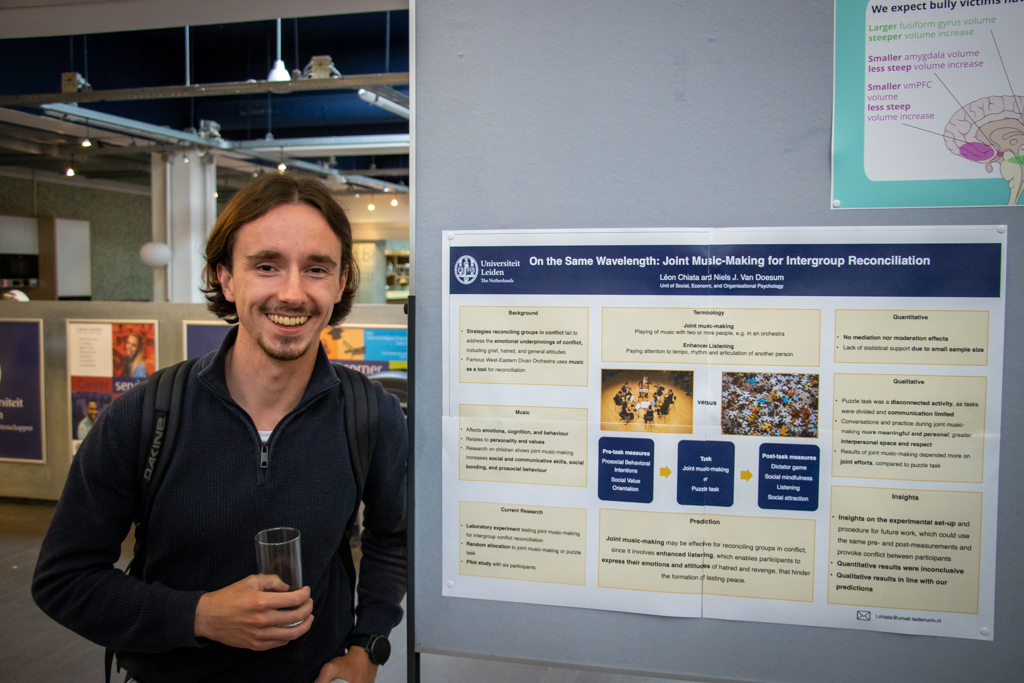
Léon Chiata
When in conflict with a colleague, one generally wouldn't feel inclined to play a classical piece together. However, it can actually help soften such disputes, and Léon has an idea as to why.
'Playing music together requires us to listen to each other more attentively and synchronize our actions. In a previous study, Arab and Jewish individuals, two groups known for their conflicts, were brought together to play a classical piece. This had a positive effect on their dynamics.
To further investigate this mechanism, I conducted a study with six participants. The findings revealed that making music together has a positive influence on our ability to collaborate, more so than solving a puzzle together. This difference is likely because puzzling is a relatively individual activity: you search for your own piece while the other person searches for theirs. Playing music, on the other hand, demands cooperation. Through this research, I have gained a better understanding of how music aids in improving strained relationships.'
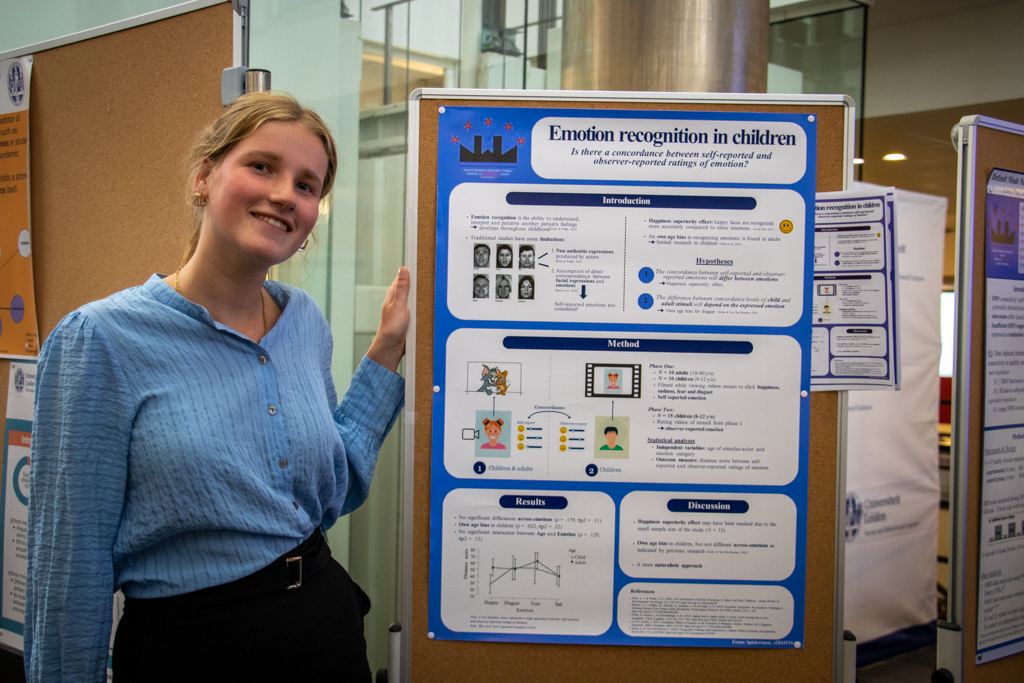
Fenna Spiekerman
How well do we recognize other people's emotions? In many psychological studies, people are shown photos of excessively happy and angry individuals. Almost theatrical. But how well do children recognize subtle, natural facial expressions? That's what Fenna wanted to investigate.
'In my research, I observed children and adults watching short clips from existing films. They reported how they felt while watching the videos, and their facial expressions were also filmed. I then showed those recordings to other children. To what extent do their assessments of the emotions correspond to what their predecessors themselves indicate they feel?
I found a notable outcome in the own-age bias effect. This means that children recognize the emotions of their peers better than those of people older or younger than themselves. I found this effect in my research as well, but it doesn't differ per emotion as expected by previous studies. The exact nature of this phenomenon still needs to be further investigated.'
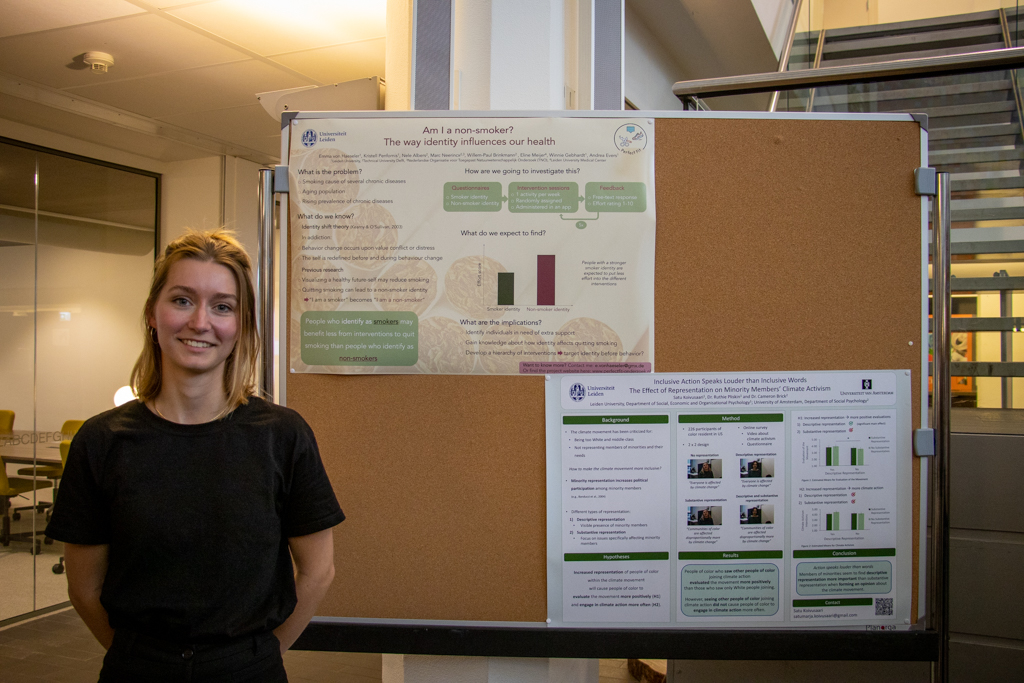
Emma von Haeseler
'Once you start, you can never quit.' Or: 'Without cigarettes, a party is just less enjoyable.' Within ourselves and society, we hold various ideas about smoking, and for some individuals, being a 'smoker' can become part of their identity. But does that identity hinder them when they want to quit smoking? Emma:
'In my thesis next year, I will examine how self-image and identity influence the behavior of smokers. I aim to gain a better understanding of how a smoker's identity may impede smoking cessation efforts. Conversely, I will explore whether individuals who smoke but do not identify themselves as smokers find it easier to quit.
I will analyse data from an app-intervention that has been tested in smokers who want to quit smoking and become more physically active. The app was developed by researchers of TU Delft. During the intervention, participants completed various exercises. For instance, they have engaged in a writing exercise where they visualize themselves in the future as non-smokers. Or they have recorded their smoking moments and instances when they crave a cigarette. I hope to disover which interventions work best for individuals who identify themselves as smokers or non-smokers. The eventual app will be targeted of people 45 years and older.'
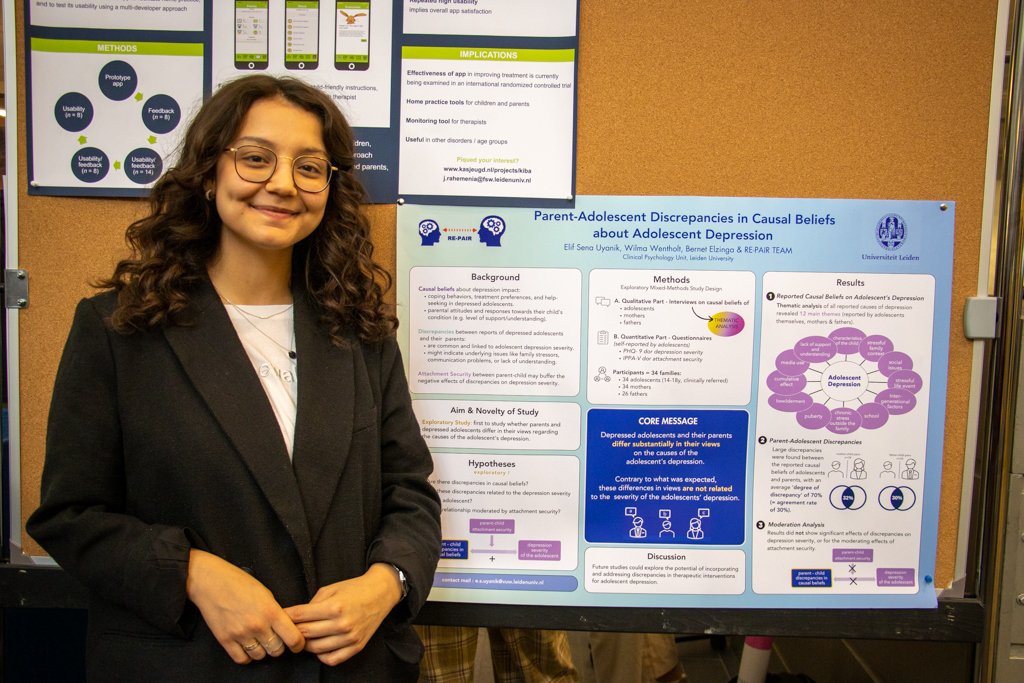
Elif Sena Uyanik
'Whether my thesis is impressive?' Elif Sena Uyanik showcases appropriate modesty when discussing her contribution to the RE-PAIR research project: 'Quite a bit.' Then the research master's student delves into her remarkable research, encompassing both qualitative and quantitative aspects.
'We have interviewd depressed adolescents aged 14-18 and their parents about their beliefs regarding what they think causes depression in the young person. Because those beliefs about depression influence how individuals cope with it and whether they seek help. I thoroughly analysed the interviews to compare the responses between parents and their children in the initial stage of depression treatment.'
Elif is in full scientific flow as she presents her poster with enthusiasm. Eventually, she concludes: 'Our goal was to find out whether there is agreement or discrepancy in the causal beliefs between parents and their children regarding the adolescent's depression. We are the first study that has investigated and found evidence for this concept of 'discrepancy in causal beliefs in depression'. We hope that with further research this finding will contribute to the treatment of depression in young people.
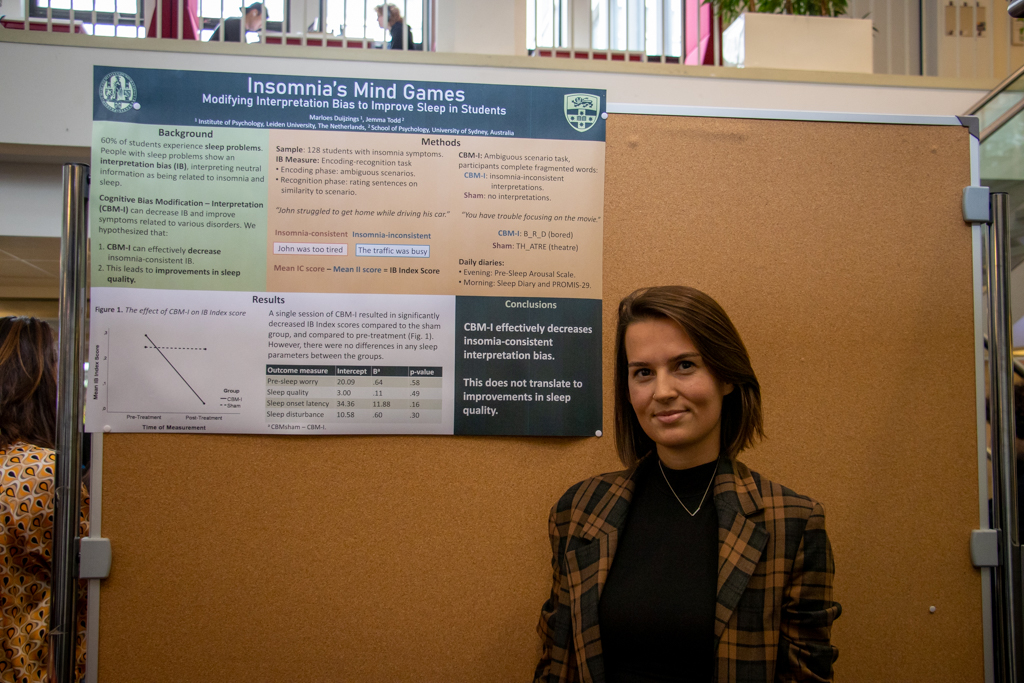
Marloes Duijzings
Imagine lying in bed, focusing on your heartbeat. You feel your heart pounding and can't fall asleep. The next time you feel your heart beating, you struggle to fall asleep again. In this way, you develop a negative thought spiral. Unintentionally, you find yourself on a path towards insomnia. Do you have difficulty falling asleep? That's what Marloes Duijzings explored in her master's thesis titled 'Insomnia's Mind Games.'
'You interpret situations that have nothing to do with sleep as if they do,' explains Marloes. 'We managed to demonstrate and reduce this bias in the participants of the study. Because that bias could potentially affect the quality of their sleep. However, we haven't yet achieved a successful one-time treatment afterward.' But perhaps that was overly ambitious. After completing her internship in Australia, Marlous conducted her research at the University of Sydney, School of Psychology. Ambition can take you places.
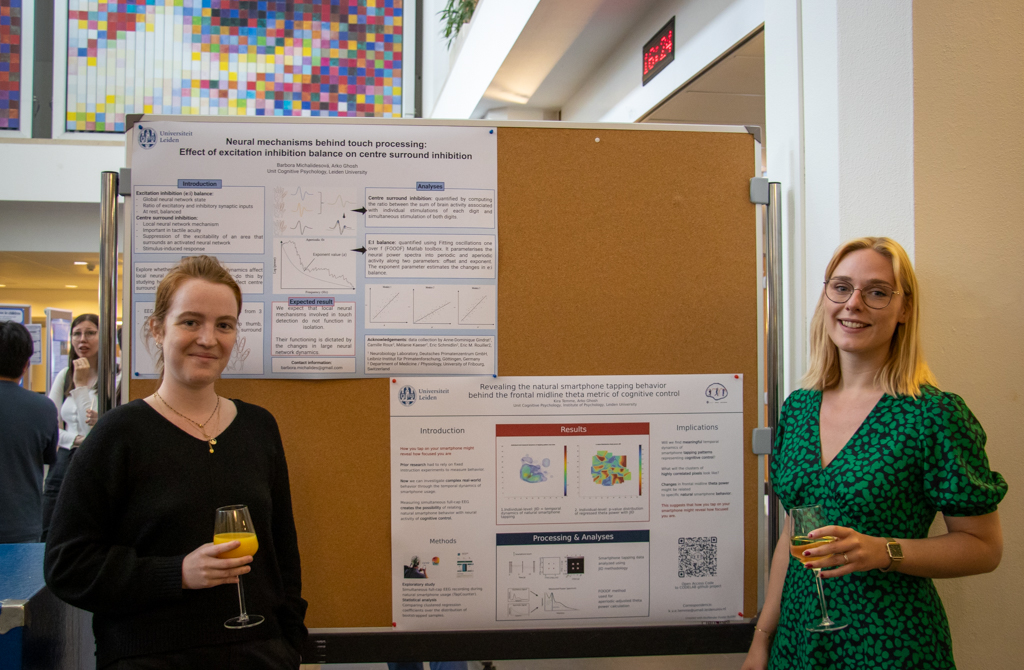
Barbora Michalidesova (links)
When you rub your hand against a cork bulletin board, you wouldn't think that your brain is working hard. You feel what you feel, and that's that. However, a lot is happening in our brains when we touch an object with a single finger. Barbara investigated exactly how this process works.
'I examined the influence of sensory information on the neural network. For this purpose, I utilized data from a study conducted in 2017. Monkeys were anesthetized, and then their fingers were touched. First, the index finger, and then, for example, the thumb and index finger simultaneously. I analyzed the data from their brain activity. This data provides insights into the neural mechanisms involved in physical touch and helps us better understand how the brain processes sensory information.'
